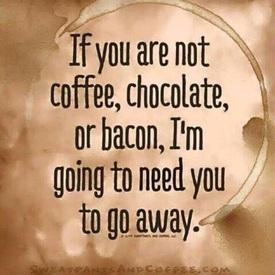What am I doing wrong?
Replies
-
Protein will cause your BG (and insulin) to rise, but generally, protein won't spike it as high or as quickly as sugar.
Here's an interesting BG/protein chart from Marty Kendall:
https://optimisingnutrition.com/2015/06/15/the-blood-glucose-glucagon-and-insulin-response-to-protein/
But any excess calories will also create an insulin rise. And when adding extra fat beyond the already high fat foods, it's super easy to eat too much in general.
Cutting back on protein and increasing fat also cuts back on nutrient density and you get less food in general for the same calories assuming you're counting them and eating at a deficit.
Nutrients matter.4 -
auntstephie321 wrote: »4031isaiah wrote: »derby_groupie wrote: »I would consume more protein than fat.
Interesting. I've always heard the opposite. Do you mind if I ask what the rationale is for upping protein? By how much?
Yes I'm curious too. I recently finished a high protein low fat plan keeping my carbs in the 80g range. It was incredibly difficult and messed up my blood work showing elevated kidney function which I have to go for follow up on, not really thrilled with that. With higher fat all my blood work was perfect and it was much easier to do.
Not adding extra fat to already high fat foods doesn't necessarily mean high protein.0 -
My opinion it is water being held by the body (if the calories and macros are as you documented), keep at it and the body will release it. I have gone 3-4 weeks with no weight movement and then in one week a 4-5 pound drop. this has happened several times, so I do not get excited over no movement on the scale anymore. Watch calories in vs calories out. No matter what diet or WOE you are doing, you cant go lower consuming more calories than your burning.0
-
Sunny_Bunny_ wrote: »auntstephie321 wrote: »4031isaiah wrote: »derby_groupie wrote: »I would consume more protein than fat.
Interesting. I've always heard the opposite. Do you mind if I ask what the rationale is for upping protein? By how much?
Yes I'm curious too. I recently finished a high protein low fat plan keeping my carbs in the 80g range. It was incredibly difficult and messed up my blood work showing elevated kidney function which I have to go for follow up on, not really thrilled with that. With higher fat all my blood work was perfect and it was much easier to do.
Not adding extra fat to already high fat foods doesn't necessarily mean high protein.
The person said higher protein than fat I asked for clarification on what macros but that info wasnt given. It was a blanket statement that could be taken to mean different things that could lead to difficulties for some. Which is why I asked for more info.0 -
Sunny_Bunny_ wrote: »Protein will cause your BG (and insulin) to rise, but generally, protein won't spike it as high or as quickly as sugar.
Here's an interesting BG/protein chart from Marty Kendall:
https://optimisingnutrition.com/2015/06/15/the-blood-glucose-glucagon-and-insulin-response-to-protein/
But any excess calories will also create an insulin rise. And when adding extra fat beyond the already high fat foods, it's super easy to eat too much in general.
Cutting back on protein and increasing fat also cuts back on nutrient density and you get less food in general for the same calories assuming you're counting them and eating at a deficit.
Nutrients matter.
I'm confused. The BG and insulin charts Marty Kendall posted (link above) seem to suggest it's the specific food rather than its relation to your caloric intake that determines the response.
But it would seem to make good sense that your body's state of need would be a factor in how you handle the a given meal.....
0 -
derby_groupie wrote: »Fat grams are higher in caloric value than protein is so if fat loss is the goal then you should consume less fat than protein- and yeah, to help maintain lean muscle mass.
The protein to fat ratio isn't really going to matter as long as you're consuming fewer calories than you burn (which yes, still matters), especially since if you're tracking calories, you're going to be holding that number steady, anyway, and every gram of fat consumption dropped would be met with about 2 grams of protein gained.
Provided you're getting enough protein to prevent lean mass loss while losing weight, the only real effect that changing the ratios will have has to do with how you as an individual handle cravings and hunger, since some people do better with more fat, while others do better with more protein.2 -
Sunny_Bunny_ wrote: »Protein will cause your BG (and insulin) to rise, but generally, protein won't spike it as high or as quickly as sugar.
Here's an interesting BG/protein chart from Marty Kendall:
https://optimisingnutrition.com/2015/06/15/the-blood-glucose-glucagon-and-insulin-response-to-protein/
But any excess calories will also create an insulin rise. And when adding extra fat beyond the already high fat foods, it's super easy to eat too much in general.
Cutting back on protein and increasing fat also cuts back on nutrient density and you get less food in general for the same calories assuming you're counting them and eating at a deficit.
Nutrients matter.
I'm confused. The BG and insulin charts Marty Kendall posted (link above) seem to suggest it's the specific food rather than its relation to your caloric intake that determines the response.
But it would seem to make good sense that your body's state of need would be a factor in how you handle the a given meal.....
My guess is that Marty Kendall's chart is in relation to a caloric neutral environment. As Dr Bernstein has said, the stretching of the stomach can cause an insulin response even if it was pebbles. In that sense, I could see how overeating could also ramp up the insulin response.3 -
Sunny_Bunny_ wrote: »Protein will cause your BG (and insulin) to rise, but generally, protein won't spike it as high or as quickly as sugar.
Here's an interesting BG/protein chart from Marty Kendall:
https://optimisingnutrition.com/2015/06/15/the-blood-glucose-glucagon-and-insulin-response-to-protein/
But any excess calories will also create an insulin rise. And when adding extra fat beyond the already high fat foods, it's super easy to eat too much in general.
Cutting back on protein and increasing fat also cuts back on nutrient density and you get less food in general for the same calories assuming you're counting them and eating at a deficit.
Nutrients matter.
I'm confused. The BG and insulin charts Marty Kendall posted (link above) seem to suggest it's the specific food rather than its relation to your caloric intake that determines the response.
But it would seem to make good sense that your body's state of need would be a factor in how you handle the a given meal.....
Check out this also by Marty Kendall
It doesn't seem to obviously address what we're talking about here but keep reading. He is at first discussing exogenous ketones by way of ketone esters, but later on describes exogenous ketones also deriving from high intake of dietary fat.
"when we drive our total energy high with excess energy (be it from processed carbs, Bulletproof Coffee, or exogenous ketones) the body releases insulin to bring the energy out of our blood stream and back into our liver.
People with the highest levels of metabolic health tend to walk around with a lower total energy in their bloodstream. It seems you don’t need to buffer lots of energy in the blood if you can easily mobilise body fat and glycogen stores quickly when required. Further, having high levels of energy sitting around in the blood stream is far from ideal and leads to glycation in the case of high blood glucose levels and oxidation in the case of free fatty acids."
https://optimisingnutrition.com/2017/04/30/are-ketones-insulinogenic-and-does-it-matter/
My take on this is that high TOTAL ENERGY regardless of source raises insulin due to the fact it simply provides more energy than needed. So adding fat to already high fat meals is risky for creating an energy surplus that would require insulin. Even if it's a zero protein, zero carb, 600+ calorie coffee.
Raising insulin in itself isn't necessarily bad though in the case of protein, it's required to uptake amino acids into the cells. To put the protein to work doing what protein does. Repair or build lean tissue and bone.
To raise insulin for the sole purpose of storing excess calories from too much total energy intake isn't even a comparable argument IMO.
2 -
Wow! I have to admit that some of this convo was over my head and a bit beyond my understanding for where I am in my keto journey at this point but what I did get from it is that it doesn't sound like I'm doing anything wrong. I think I will leave my macros as they are, keep doing what I'm doing and wait for the "whoosh" that will hopefully happen when my body settles and let's go of whatever it is retaining.
Thanks everyone for your great responses.
Christie.2 -
4031isaiah wrote: »Wow! I have to admit that some of this convo was over my head and a bit beyond my understanding for where I am in my keto journey at this point but what I did get from it is that it doesn't sound like I'm doing anything wrong. I think I will leave my macros as they are, keep doing what I'm doing and wait for the "whoosh" that will hopefully happen when my body settles and let's go of whatever it is retaining.
Thanks everyone for your great responses.
Christie.
I'm sorry for derailing your perfectly straightforward question.
(I might be inclined to boost the protein a little.)1 -
Are you menstrating? Or ovulating?
Weighing and measuring all foods? (It's all too easy to overestimate fats, especially when eyeballing them)
Do you eat out a lot? Restaurants underestimate caloric values of their food by 20-40%.
Are you logging everything? Bites, sips, tastes? Alcohol? Snacks? Unplanned treats?0 -
Are you menstrating? Or ovulating?
Weighing and measuring all foods? (It's all too easy to overestimate fats, especially when eyeballing them)
Do you eat out a lot? Restaurants underestimate caloric values of their food by 20-40%.
Are you logging everything? Bites, sips, tastes? Alcohol? Snacks? Unplanned treats?
I weigh/measure food. I don't eat out. I log everything, I don't drink alcohol and it's not PMS/TOM. That's why I was so confused.
I think my digestive system is the culprit. I drank extra water and took some magnesium citrate. I'll keep doing that for a few days and hope it solves the problem.2 -
I haven't taken my macros from fitness pal. However, your fat can come from what you eat or from your body, so compared to my fat/protein macros - you are eating too much fat and not enough protein. My macros are 68 fat (however I go below - so fat can be taken from my body) and 100grms of protein. I belong to a few groups on fb and the macros are the same. hope that helps!2
-
Ps. re calories - ignore them!1
-
anniemcfanni wrote: »I haven't taken my macros from fitness pal. However, your fat can come from what you eat or from your body, so compared to my fat/protein macros - you are eating too much fat and not enough protein. My macros are 68 fat (however I go below - so fat can be taken from my body) and 100grms of protein. I belong to a few groups on fb and the macros are the same. hope that helps!
Thank you. That was very helpful. I will try that and see what happens.
I always thought the macros had to be 5-10% carbs, 20% protein and 70-75% fat. That's how I got my #s. I'm going to switch it up starting today and see if it makes difference in a few days.
How many grams of carbs do you eat?1 -
Hi again, my macros are 20 however I rarely go above 10.1
-
@4031isaiah - The thing about macros is that some work better for some folks, others work better for other folks. Tweak to find what works for you. Just remember that you need to give any changes a minimum of 4 weeks to determine true effect. It takes that long for the body to adapt and start to truly reflect changes. Remember, the scale, aside from fluid fluctuations, shows what you did TWO WEEKS AGO, not yesterday.1
-
KnitOrMiss wrote: »@4031isaiah - The thing about macros is that some work better for some folks, others work better for other folks. Tweak to find what works for you. Just remember that you need to give any changes a minimum of 4 weeks to determine true effect. It takes that long for the body to adapt and start to truly reflect changes. Remember, the scale, aside from fluid fluctuations, shows what you did TWO WEEKS AGO, not yesterday.
I'm so sorry, could you elaborate on that....?
0 -
Well... I've upped my protein, reduced my fat, stick to 1200-1400 calories, use ketostix daily and show ketones, yet... I've lost barely 3lbs since April 1.
 0
0 -
4031isaiah wrote: »I average 20-25g carbs, 100g fat, 60-70g protein, 1250-1300 cals and 9-10 cups of water/ day, 2500-3000mg of sodium & potassium, I use Ketostix that indicate I am in Ketosis and I'm somehow still up 3lbs this week.
Am I missing something?
Are you a woman?0 -
Yes.0
-
4031isaiah wrote: »Well... I've upped my protein, reduced my fat, stick to 1200-1400 calories, use ketostix daily and show ketones, yet... I've lost barely 3lbs since April 1.

Dunno - presumably the calorie goal represents a deficit from the estimated basal rate? My calories are about 500 below what I think maintenance is. I am losing about a pound a week more or less. I claim that if I were 250 under, it might work out to a pound every two weeks, and that is where you are.
I still think you need to be checking with the tape measure.0 -
4031isaiah wrote: »Yes.
So, that would be my first thought. Just monthly water retention. See if it passes with a loss after a week or so.0 -
I agree with using the tape measure and also photos, the scale is only one way to track progress and it's affected by so many variables that can mask any losses.0
-
Your diary appears to be private. It'll be difficult to offer ideas without more info1
-
Sunny_Bunny_ wrote: »Your diary appears to be private. It'll be difficult to offer ideas without more info
I know. I keep it private because not everyone on my friends list understands or agrees with Keto and there are some pretty critical people out there. I tend not to talk LCHF outside of the designated message boards.
I'm happy to share my #s and details.
0 -
JessicaLCHF wrote: »4031isaiah wrote: »Yes.
So, that would be my first thought. Just monthly water retention. See if it passes with a loss after a week or so.
I wish that was the case. I've gone through 2 cycles since I started and no change (except the 3lbs I gained) but no actual loss.0 -
Have you tried eating within a restricted time window, intermittent fasting (IF)? I'm doing 16 hours of fasting with 8 hours to eat all my calories for the day & it got me out of a stall. Butter Bob on youtube explains why it can help to restrict the time you allot for eating.0
-
I tried the 16/8 for about 2 weeks a few weeks ago. I see it's value and may try again soon but I stopped at the time because I couldn't do it without a bulletproof drink in the morning which I cut out to help lower my fat/calorie intake.0
-
4031isaiah wrote: »I tried the 16/8 for about 2 weeks a few weeks ago. I see it's value and may try again soon but I stopped at the time because I couldn't do it without a bulletproof drink in the morning which I cut out to help lower my fat/calorie intake.
I feel you. I can IF for up to 3 days in a row, with an under-50cal coffee, after that period though, I get headaches and get hangry. My family begs me to eat breakfast again.
You could try 12hr fast then work up to the 16... You might only need to do it for a short while to jog your system into cooperating. Or just wait it out.1
This discussion has been closed.














